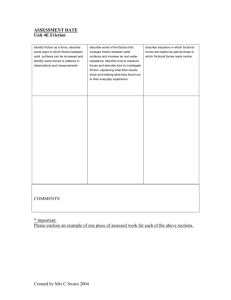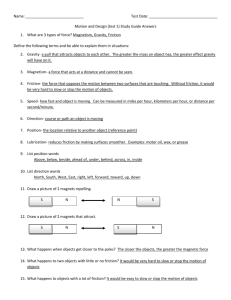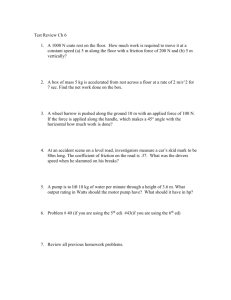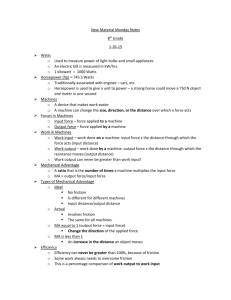Friction Notes
advertisement
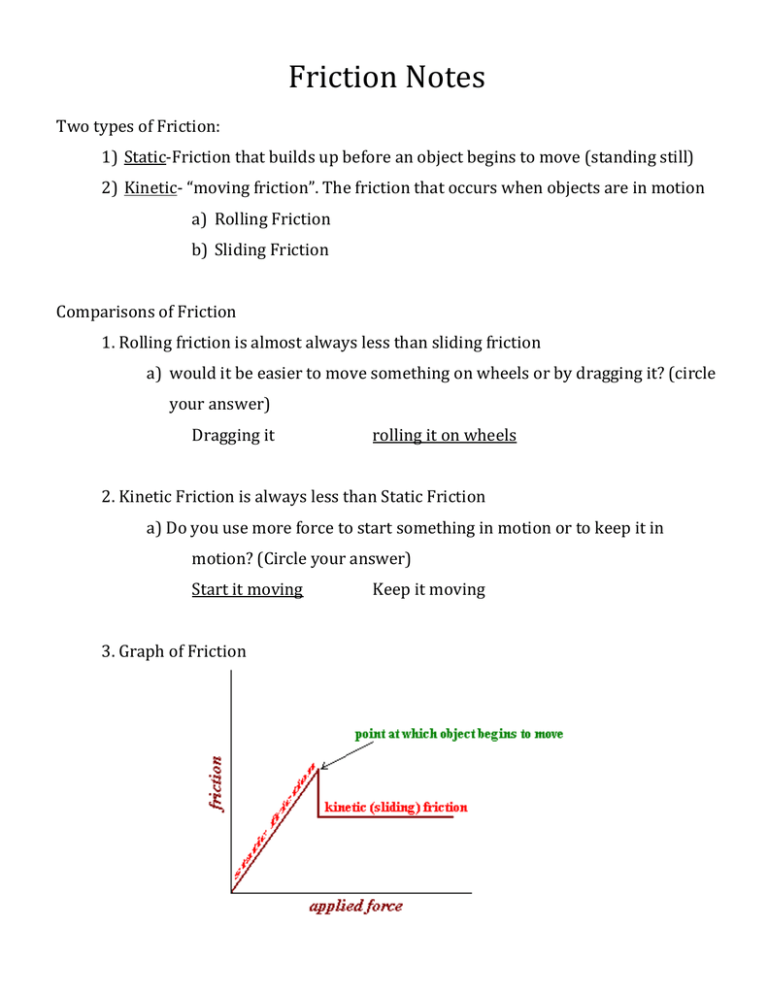
Friction Notes Two types of Friction: 1) Static-Friction that builds up before an object begins to move (standing still) 2) Kinetic- “moving friction”. The friction that occurs when objects are in motion a) Rolling Friction b) Sliding Friction Comparisons of Friction 1. Rolling friction is almost always less than sliding friction a) would it be easier to move something on wheels or by dragging it? (circle your answer) Dragging it rolling it on wheels 2. Kinetic Friction is always less than Static Friction a) Do you use more force to start something in motion or to keep it in motion? (Circle your answer) Start it moving 3. Graph of Friction Keep it moving What affects Friction? For each of the scenarios, perform a short test to see if friction is affected by the thing being studied. Remember to only change the thing you are studying, and nothing else. Collect data and then write a concluding statement as to how each factor affects friction, or whether it has no effect. 1. Do the types of surfaces affect friction? Surface Type Amount of Friction Conclusion: 2. Does the mass (weight) of the object? (keep surfaces the same) Object Mass Amount of Friction Conclusion: 3. Does the area in contact with the surfaces affect friction? (Keep mass the same) Surface Area Amount of Friction Conclusion: Friction Notes Two types of Friction: 3) ______________________-Friction that builds up before an object begins to move (standing still) 4) _______________________- “moving friction”. The friction that occurs when objects are in motion c) Rolling Friction d) Sliding Friction Comparisons of Friction 1. Rolling friction is almost always _______________________ than sliding friction b) would it be easier to move something on wheels or by dragging it? (circle your answer) Dragging it rolling it on wheels 2. Kinetic Friction is always ____________________ than Static Friction a) Do you use more force to start something in motion or to keep it in motion? (Circle your answer) Start it moving 3. Graph of Friction Keep it moving What affects Friction? For each of the scenarios, perform a short test to see if friction is affected by the thing being studied. Remember to only change the thing you are studying, and nothing else. Collect data and then write a concluding statement as to how each factor affects friction, or whether it has no effect. 1. Do the types of surfaces affect friction? Surface Type Amount of Friction Conclusion: 2. Does the mass (weight) of the object? (keep surfaces the same) Object Mass Amount of Friction Conclusion: 3. Does the area in contact with the surfaces affect friction? (Keep mass the same) Surface Area Amount of Friction Conclusion:
